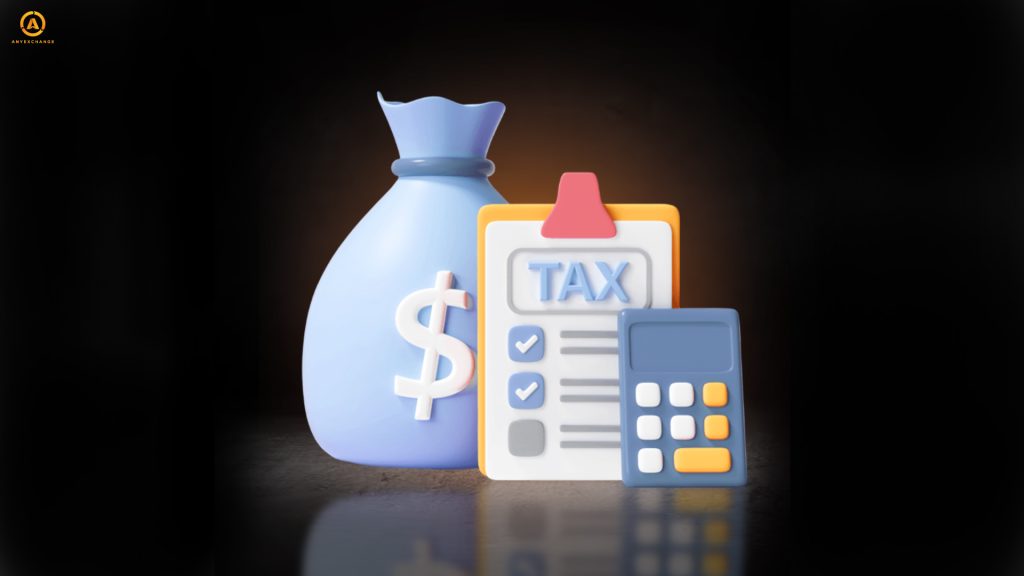
Cryptocurrencies are gradually shedding their shroud of crypto-punk mystery, leaving the gray area and becoming an accepted object of investment, trade and payment. After the U.S. presidential election in November, there is no doubt that the trend towards the proliferation and legalization of digital assets will accelerate globally. Over the past few years, as cryptocurrencies have broken through the barrier of institutional acceptance, the processes of shaping the laws governing the sector have already gained momentum. Today, however, after the newly elected president of the United States pressed the accelerator, the development will definitely gain momentum.
Regulatory changes in the country with the world’s largest economy cannot help but affect the global tax systеm for digital assets. Changes in legislative approaches that have never been seen before will take place before our eyes. And it is important for investors around the world to understand the tax consequences of owning or trading digital assets, lest they lose money or expose themselves to the threat of prosecution for tax evasion or money laundering.
Our article is dedicated to providing an overview of the current taxation systems for cryptocurrencies around the world and the prospects that can be expected due to emerging trends in the near future.
Taxation of cryptocurrencies depends on the legal status that digital assets have under the laws of a particular country. In Ukraine, for example, cryptocurrency does not yet have a certain legal status, so it is considered not legalized.
Usually, the difference in approaches to taxation in individual countries stems from the fact whether cryptocurrency is related to commodities or securities.
This question is controversial because digital assets have the characteristics of both goods (money) and securities (because by purchasing them we become owners of a share in the project). Currently, there are no clear rules on the distinction, so there is no single opinion on all cryptocurrencies in all jurisdictions. Somewhere they are recognized as a commodity and therefore a means of payment, and somewhere as a security. Relative unity has only been achieved with respect to bitcoin — the first cryptocurrency to be recognized as a commodity by most governments.
You have probably heard that the SEC (U.S. Securities and Exchange Commission) and CFTC (Commodity Futures Trading Commission) are putting pressure on the crypto market. This is due to the fact that cryptocurrencies recognized as securities fall under the supervision of these regulatory bodies, with all the consequences that follow.
By the way, to the undeniable joy of the market, Gary Gensler, who served as the head of the SEC and who, according to professional market participants, really oppressed the sector with bureaucracy, literalism, pressure on innovation and endless lawsuits, resigned a year before the end of the standard term, on the day of the inauguration of the newly elected president. To fill the vacant position, Trump proposed Paul Atkins, an experienced SEC commissioner, an advocate for the development of the crypto sector and “a proven leader in the field of sensible regulation” (so he was characterized by the odious billionaire). As for the head of the CFTC — for this post Trump nominated Brian Quintenz, former commissioner of the agency and director of cryptocurrency policy Andreessen Horowitz (a16z). The industry has received both figures with positive expectations.
Tax rates on cryptocurrencies also vary widely from country to country: The US, Canada, the EU and Asian countries all have their own tax rules, rates and exemptions. Let’s look at some specific examples.
Taxation of cryptocurrencies in the United States

Just one day after taking the presidential oath of office, Trump announced that the U.S. was ready to enact the largest tax cut in the nation’s history and noted that he would ask the Fed to lower interest rates.
Also on January 23, 2024, Congressman Warren Davidson called for the repeal of the Biden administration’s requirements to tax cryptocurrencies. At a meeting of the House Budget Committee, whose functions inсlude the preparation of tax bills, the politician devoted his speech to this very topic. In turn, Eric Trump, son of the newly elected president and head of “The Trump Organization”, one of the largest family companies in the world, promises a zero capital gains tax rate for coins of American origin, while foreign projects will pay 30%.
In general, it can be said that the US policy towards cryptocurrencies is currently in a phase of increased turbulence. On the one hand, for example, since October 2024 in the state of Ohio is pending a bill, which obliges state authorities to accept payment of local taxes and fees in cryptocurrency. And on the other hand — the position of the U.S. Treasury Department, the Federal Reserve Bank and some senators, in particular Elizabeth Warren, a well-known opponent of cryptocurrencies, is aimed at a systеm of strict taxation of bitcoin and other cryptocurrencies, control and high standards for reporting the entire industry of digital assets.
According to many experts, the situation with the conditions for crypto business in the United States was worse than ever before the recent events, but today there are all the prerequisites for its improvement. Almost the entire new Senate shows friendliness and willingness to cooperate, as well as a deep understanding that if we continue as we are, the entire market will leak through America’s fingers to Asian countries.
Cryptocurrency regulation in terms of tax enforcement in the US looks something like this:
- The Internal Revenue Service (IRS) treats cryptocurrency as a taxable item.
- Tax liability depends on how the cryptocurrency is used. Acquiring them for cash and receiving them as a gift and then holding them are considered non-taxable events. When investing in cryptocurrencies, tax liabilities arise when digital assets are sold or used for profit.
- Depending on how the gain is characterized, it will be subject to income or capital gains tax. This characterization is determined by the manner of acquisition and the length of ownership.
- Short-term gains (less than 12 months) are taxed at a rate of 10-37%. The rate for long-term investors is 0%, 15% or 20% depending on their income level.
- Cryptocurrency mining is taxed based on the market value of the coins at the time of mining.
Cryptocurrency tax rules in Europe

For the most part, EU countries levy taxes on profits from cryptocurrency transactions (from sales, exchanges and payments), classifying them as property. At the same time, despite the implementation of the new MiCA common rules, the tax laws of European uniоn countries provide for different tax rates and collection mechanisms for cryptocurrencies as of the end of 2024.
- For example, German legislation on cryptocurrencies and taxes aims to encourage long-term investment: if an asset is held for more than 12 months or the income from its sale does not exceed €600, it is not subject to tax. In other cases, you will have to pay a tax of up to 45%.
- In Spain, regardless of the movements of the asset, income tax is levied at rates of 19%-28%.
- Italy will tax cryptocurrency trading from 2023 in the form of a 26% capital gains tax on amounts above €2,000.
- Lithuania, as a cryptocurrency-friendly jurisdiction, does not apply capital gains tax on digital assets, but operates with a basic corporate tax rate of 15% and a reduced rate for small entrepreneurs (in the range of 0-5%).
- The Danish government applies a fairly strict tax systеm: capital gains tax of up to 42%, tax on income from mining and staking of up to 56%, and has clear plans to introduce taxes on unrealized gains.
Cryptocurrency Taxes in Asia
Asian countries are mostly on their way to becoming more crypto-friendly. Here’s some recent positive news:
- South Korea is in no hurry to introduce new taxes on cryptocurrencies. The decision to impose a 20% tax on profits from transactions worth more than 2.5 million Korean won is being postponed by the government from 2020. A month ago, its introduction was postponed until 2027.
- The United Arab Emirates, one of the top three countries in terms of cryptocurrency adoption, continues to ease regulations and legitimize the digital asset sector. The UAE authorities have abolished VAT on cryptocurrency exchanges and transfers in October 2024. Moreover, the abolition is retroactive — legal entities can apply for a refund of VAT paid since January 1, 2018.
Cryptocurrency taxes in russia
The aggressor country, which occupies the honorable first place in the world in the number of sanctions imposed, being in search of additional legal sources of funds, has become more active in matters of legalization of cryptocurrencies. In particular, on November 26, 2024, the russian State Duma approved in the second and third reading the law on taxation of digital assets, which had been lying on the shelf for more than four years. According to it, cryptocurrency is classified as property and is subject to personal income tax at the rate of 13-15% when sold. Legal entities will be required to pay 20% income tax from the moment the law comes into force, the rate will be increased to 25% in 2025.
Taxation of cryptocurrencies in Canada
The Canada Revenue Agency classifies digital assets as goods and applies capital gains tax to them. Individuals pay it at 50% of the amount of capital gains, while professional traders, who are equated with entrepreneurs by Canadian law, pay it at 100% (capital gains in their case are considered as profit). The tax rate is the same as the federal and provincial income tax rates.
A thief should be in jail
In December 2024, Texas resident Frank Richard Algren III was sentenced to two years in prison for falsely reporting cryptocurrency income on his tax return. He became the first American to be convicted of tax crimes directly related to cryptocurrency trading.
The convicted man had been buying and selling bitcoins since 2011, making millions because he believed tax authorities would not be able to track his transactions. He overstated his purchases and understated his sales, conducted transactions through cryptomixers, lied to his accountant, and falsified his tax returns. As a result, he was charged with failing to pay $1 million in taxes. He will have to pay it back to the government.
The bottom line
If you don’t want to be like Frank Richard Algren III, before investing in digital assets in any jurisdiction, be sure to speak with qualified attorneys and financiers who specialize in providing tax advice and guidance to cryptocurrency owners. As a result of the dialogue, it is important for you to get answers to the following questions:
- How to legally pay cryptocurrency taxes to avoid prosecution?
- How to properly report cryptocurrency income?
- How to pay taxes on cryptocurrency so as not to go into the red?
Thank you for your attention. Invest safely and profitably!
AnyExchange is a service that allows you to exchange popular cryptocurrencies for electronic or cash money at the best rate. Fast money transfers worldwide are also available on the website of our exchanger.





